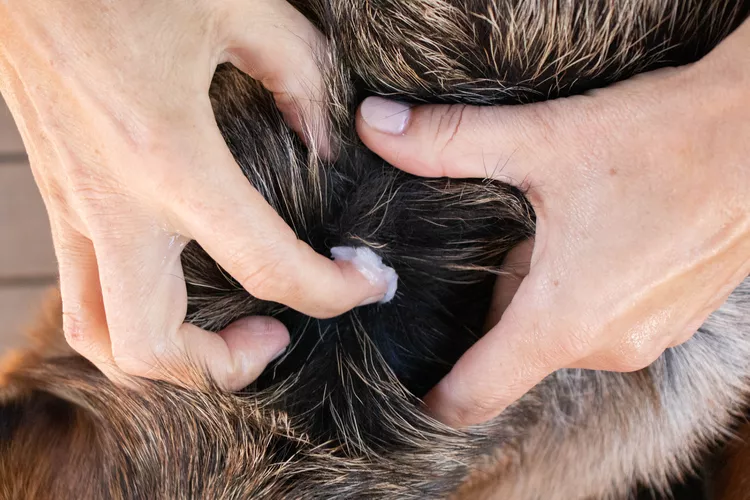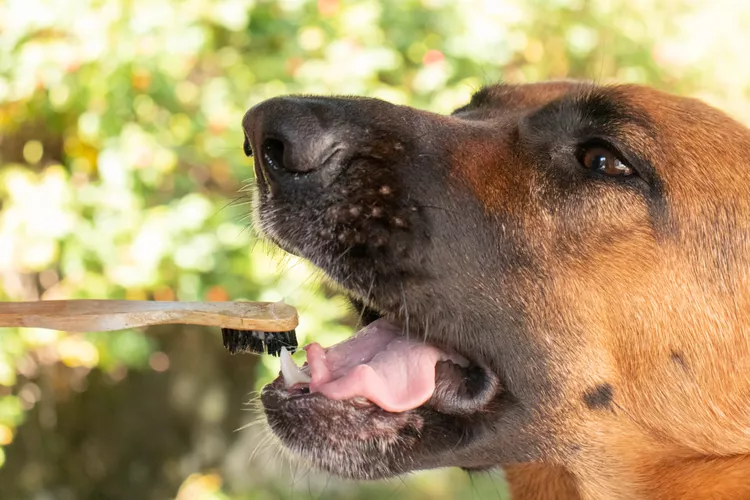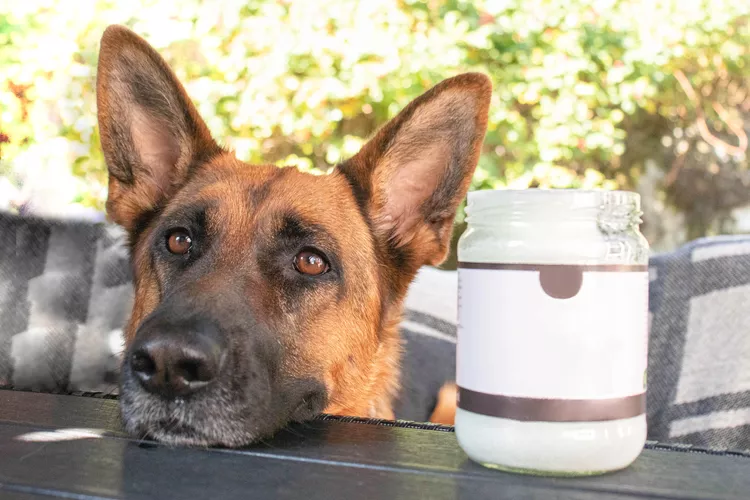Coconut oil can offer various benefits for dogs, similar to those it provides for humans. However, it’s important to weigh these potential benefits against any risks before incorporating it into your dog’s routine. While coconut oil might help with digestive issues, skin conditions, and more, it’s essential to consult your veterinarian and consider the pros and cons. Here are five ways coconut oil can be used for dogs:

How Is Coconut Oil Used?
Coconut oil, derived from mature coconuts, is commonly found in both food and beauty products due to its high levels of saturated fat and medium-chain triglycerides (MCTs). MCTs are associated with benefits such as weight management and improved cognitive function. When used in moderation, coconut oil can provide benefits for some dogs, including being added to their food, used as a pill coating, applied topically, or used for dental care.
1. Add Coconut Oil to Meals and Treats
With your vet’s approval, adding coconut oil to your dog’s food may help balance thyroid activity, potentially aiding in weight management and boosting energy levels. Coconut oil can also improve nutrient absorption, help manage digestive disorders, and reduce inflammation. However, due to its high saturated fat content, it should be used sparingly. Begin with a small amount, such as a 1/4 teaspoon for small dogs and up to a tablespoon for larger breeds, and monitor for any adverse effects like weight gain or digestive upset.
2. Apply Coconut Oil to Your Dog’s Skin
Coconut oil can be applied to your dog’s skin to combat dryness and flakiness, especially in winter. It may also help repel fleas and ticks when applied to the coat. To use, rub a small amount between your hands and massage it into your dog’s fur. Note that this may increase your dog’s licking of the area.

3. Use Coconut Oil as a Coating on Pills
If your dog is reluctant to take medication, try coating the pill with coconut oil. This can make the pill more appealing and help with easier swallowing.
4. Soothe Minor Wounds with Coconut Oil
Coconut oil has natural antibacterial, antiviral, and antifungal properties, making it useful for soothing minor wounds like cracked paw pads and skin irritations. However, avoid applying it to open or infected wounds. For serious injuries, consult your veterinarian for proper treatment.
5. Brush Your Dog’s Teeth with Coconut Oil
Coconut oil’s antimicrobial properties can be beneficial for dental care. Adding a small amount to your dog’s toothpaste or applying it directly to their teeth can help reduce harmful bacteria and prevent plaque buildup.

Final Note
Always consult with your veterinarian before making any changes to your dog’s diet or care routine. If you observe any negative reactions to coconut oil, discontinue use and consider alternatives like salmon or flaxseed oil, which offer similar benefits.





